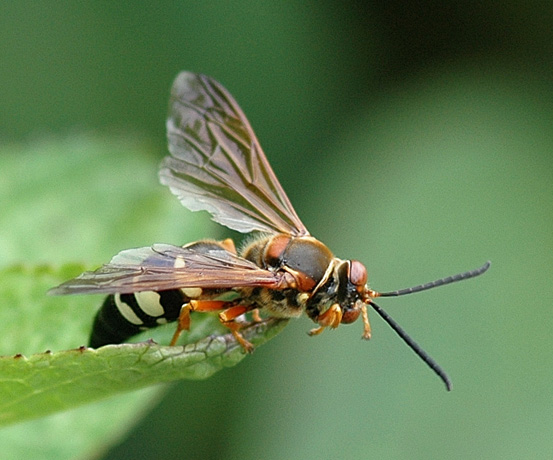Classification
Common Name: Cicada Killer, Cicada Killer Wasp,
Eastern Cicada Killer
Common name originates from its geographic location (Eastern United
States) as well as their primary food source (cicadas).
Domain: Eukaryota
Species in this domain have complex cell parts surrounded by a membrane.
Kingdom:
Animalia
Species in this kingdom are multicellular heterotrophs with no cell walls.
Phylum:
Arthropoda
Species under this phylum are vertebrates with segmented bodies, jointed
appendages, exoskeletons made of chitin, have a nervous system, and
reproduce sexually.
Class: Insecta
Species under this class have three body parts (head, thorax, abdomen),
three sets of legs, compound eyes, and antenna.
Order: Hymenoptera
Hymenoptera in English means "membranous wings" members of this order have
two sets of wings, narrow junctions between thorax and abdomen.
Family: Crabronidae
Members of this family were formerly lumped with Sphecidae, larvae feed on
prey captured and brought to the nest by adults.
Genus:
Sphecius
Members of this genus are large solitary wasps.
Species:
Sphecius
speciosus (Drury, 1773)
Members of this species are cicada killers.
In Latin, specious means "showy" or "beautiful".Taxonomy information collected from
Animal Diversity
Web and BugGuide.
Home

